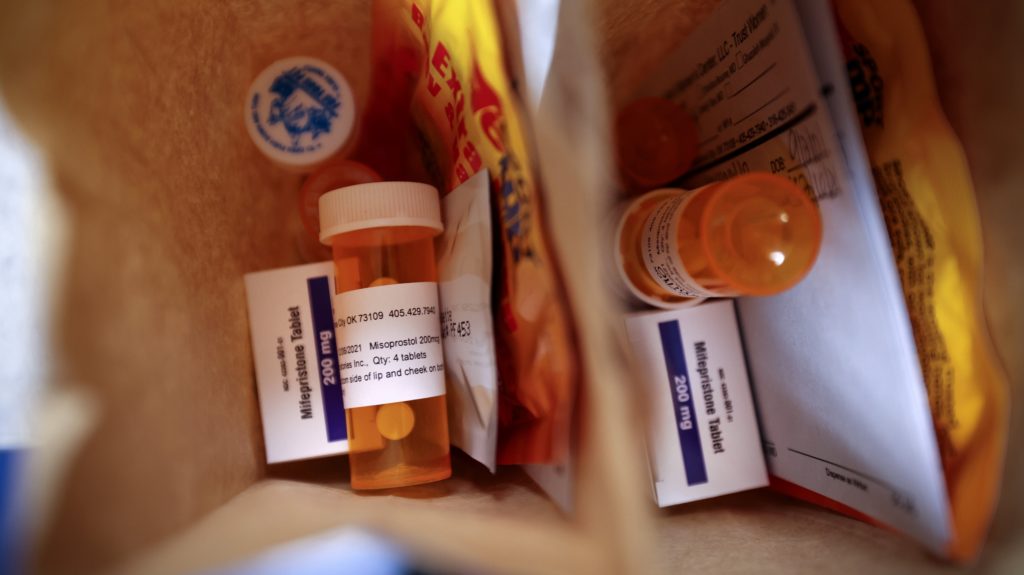Louisiana lawmakers enacted legislation May 23 that would classify drugs used for both early abortion and miscarriage as controlled dangerous substances, and would criminalize improperly possessing the pills, such as lacking a valid prescription or their use outside the context of a professional medical practice.
The state Senate voted 29-7 to concur with the House version of the bill previously introduced in the Senate by Republican state Sen. Thomas Pressly. In its original Senate version, Senate Bill 276 makes it a crime to intentionally give an abortion-inducing drug to a pregnant woman without her consent, something Pressly said happened to his sister, Catherine Herring, in another state. The House amended the bill to include this drug reclassification and approved it May 21 in a 64-29 vote.
Republican Gov. Jeff Landry signed the first-of-its-kind legislation into law hours after it arrived on his desk May 23.
Sarah Zagorski, the communications director for Louisiana Right to Life, greeted the Legislature's passage of SB 276 in a statement, saying the bill would "protect women like his (Sen. Pressly's) sister for decades to come."
"It is evident from Sen. Pressly's own testimony that the illegal distribution of the abortion pill is out-of-control in Louisiana," Zagorski said, "with young girls receiving the pills without parental consent, physician oversight and far past the gestational limit set forth by the Food and Drug Administration."
Prior to the state Senate's concurrence, Vice President Kamala Harris wrote on X, formerly known as Twitter, that the measure was "Absolutely unconscionable."
"The Louisiana House just passed a bill that would criminalize the possession of medication abortion, with penalties of up to several years of jail time," she wrote.
"Let's be clear: Donald Trump did this," Harris added.
The Biden-Harris campaign has sought to tie restrictions on abortion to the former president, the presumptive Republican nominee. But Trump issued a statement in April arguing abortion should be left to individual states to legislate and declined to back federal restrictions sought by pro-life activists.
Pressly replied to Harris on X, stating "what's unconscionable is blatantly lying about my bill."
"Leaving out the part about 'not having a valid prescription' & our efforts to protect expectant mothers from being slipped abortion meds by diabolical spouses, that's kind of a big omission," he wrote. "Do better."
The legislation classifies mifepristone and misoprostol -- the combination of drugs used in a chemical or medication abortion -- as controlled dangerous substances, a category also including medications that can be abused including narcotics. However, the bill states someone who possesses the drugs "for her own consumption" would be exempt from prosecution.
The same pill combination also has been prescribed to women who experience early pregnancy miscarriage to expel any fetal remains and residual pregnancy tissue from the womb. The American College of Obstetricians and Gynecologists updated its protocols to recommend a combination of mifepristone and misoprostol as more effective than misoprostol alone for early miscarriage care based on research published since 2018.
The Food and Drug Administration has argued the drugs pose statistically little risk to the mother in the early weeks of pregnancy. But critics have alleged regulations on the drug were improperly reduced in a lawsuit currently under consideration by the U.S. Supreme Court.
Data from the Centers for Disease Control and Prevention shows that more than half of the abortions performed in the U.S. -- or 53% -- are carried out with medication rather than surgical procedures.
Louisiana prohibits abortion unless a woman's life is at risk or a pregnancy deemed "medically futile."
OSV News reached out to the Louisiana Catholic Conference of Bishops for comment May 24, but did not receive an immediate response.
The Catholic Church teaches that all human life is sacred from conception to natural death, opposing direct abortion as an act of violence that takes the life of the unborn child.
After the Dobbs decision, Church officials in the United States have reiterated the Church's concern for both mother and child, and called to strengthen available support for those living in poverty or other causes that can push women toward having an abortion.

